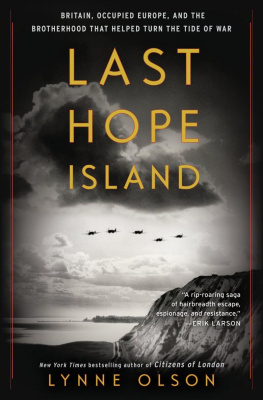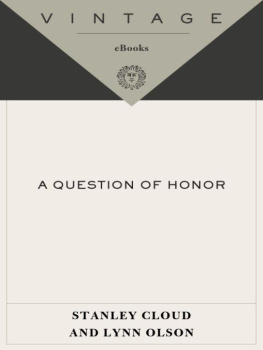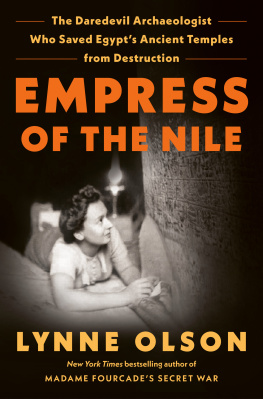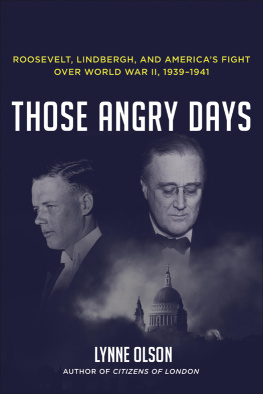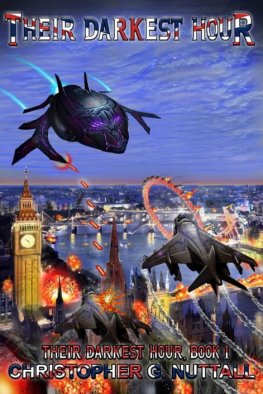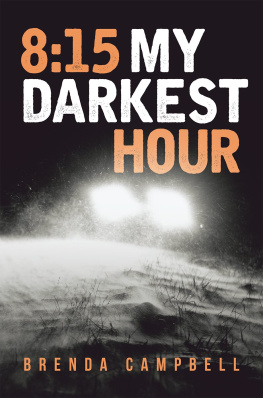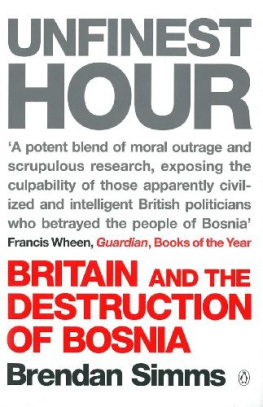Lynne Olson - Citizens of London: The Americans Who Stood with Britain in Its Darkest, Finest Hour
Here you can read online Lynne Olson - Citizens of London: The Americans Who Stood with Britain in Its Darkest, Finest Hour full text of the book (entire story) in english for free. Download pdf and epub, get meaning, cover and reviews about this ebook. year: 2010, publisher: Random House Publishing Group, genre: History. Description of the work, (preface) as well as reviews are available. Best literature library LitArk.com created for fans of good reading and offers a wide selection of genres:
Romance novel
Science fiction
Adventure
Detective
Science
History
Home and family
Prose
Art
Politics
Computer
Non-fiction
Religion
Business
Children
Humor
Choose a favorite category and find really read worthwhile books. Enjoy immersion in the world of imagination, feel the emotions of the characters or learn something new for yourself, make an fascinating discovery.

- Book:Citizens of London: The Americans Who Stood with Britain in Its Darkest, Finest Hour
- Author:
- Publisher:Random House Publishing Group
- Genre:
- Year:2010
- Rating:3 / 5
- Favourites:Add to favourites
- Your mark:
- 60
- 1
- 2
- 3
- 4
- 5
Citizens of London: The Americans Who Stood with Britain in Its Darkest, Finest Hour : summary, description and annotation
We offer to read an annotation, description, summary or preface (depends on what the author of the book "Citizens of London: The Americans Who Stood with Britain in Its Darkest, Finest Hour " wrote himself). If you haven't found the necessary information about the book — write in the comments, we will try to find it.
Lynne Olson: author's other books
Who wrote Citizens of London: The Americans Who Stood with Britain in Its Darkest, Finest Hour ? Find out the surname, the name of the author of the book and a list of all author's works by series.
Citizens of London: The Americans Who Stood with Britain in Its Darkest, Finest Hour — read online for free the complete book (whole text) full work
Below is the text of the book, divided by pages. System saving the place of the last page read, allows you to conveniently read the book "Citizens of London: The Americans Who Stood with Britain in Its Darkest, Finest Hour " online for free, without having to search again every time where you left off. Put a bookmark, and you can go to the page where you finished reading at any time.
Font size:
Interval:
Bookmark:
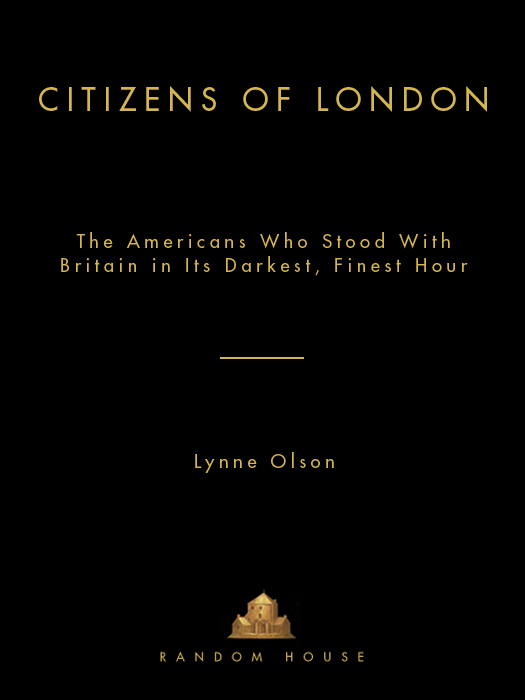
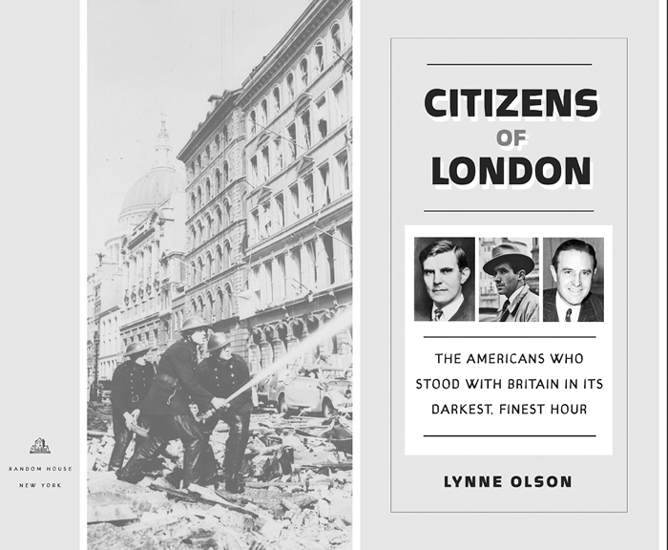
ALSO BY LYNNE OLSON
Troublesome Young Men:
The Rebels Who Brought Churchill to
Power and Helped Save England
A Question of Honor:
The Kosciuszko Squadron:
Forgotten Heroes of World War II
(with Stanley Cloud)
Freedoms Daughters:
The Unsung Heroines of the Civil Rights Movement
from 1830 to 1970
The Murrow Boys:
Pioneers on the Front Lines of Broadcast Journalism
(with Stanley Cloud)
TO STAN AND CARLY
WITH LOVE
In years to come, men will speak of this war and say, I was a soldier,
I was a sailor, or I was a pilot.
Others will say with equal pride, I was a citizen of London.
E RIC S EVAREID , O CTOBER 1940
Theres no place Id rather be than in England.
J OHN G ILBERT W INANT, MARCH 1941
If we are together, nothing is impossible. If we are divided, all will fail.
W INSTON C HURCHILL , S EPTEMBER 1943
It was a terrible war, but if you were the right age and in the right place, it was spectacular.
P AMELA C HURCHILL H ARRIMAN
O N A CHILLY NIGHT IN EARLY 1947, A TALL, LANKY AMERICAN WITH tousled dark hair emerged from a theater in Londons West End. Other playgoers, pouring into the street from nearby theaters, stopped and stared. They had seen the mans angular face and slightly stooped frame in wartime newsreels and newspaper photographs, and most knew immediately who he was. As he and two companions headed down Shaftesbury Avenue, they were surrounded by a throng of people. Good evening, Mr. Winant, several in the crowd said. A couple of men doffed their hats. One woman reached out and shyly touched his coat.
For those gathered around him, the sight of John Gilbert Winant conjured up memories of smoke-filled nights in early 1941 when Winant, the American ambassador to Britain, walked the streets of London during the heaviest raids of the Blitz, Germanys nine-month terror bombing of British cities. He asked everyone he metfiremen, dazed victims, air wardens pulling bodies out of the rubblewhat he could do to help. In those perilous times, one Londoner remembered, Winant convinced us that he was a link between ourselves and millions of his countrymen, who, by reason of his inspiration, spoke to our very hearts.
Yet, while he was instantly recognizable in Britain, few Americans had ever heard of Winant. Even fewer were aware of the key role he had played in shaping and maintaining the alliance between the United States and Britain in World War II. In future decades, that extraordinary partnershipthe closest and most successful wartime alliance in historywould come to be known as the special relationship that helped win the conflict, preserve democracy, and save the world. As the years passed and the legend surrounding the alliance took shape, the manner of its creation seemed almost preordained: first, Winston Churchill rousing his nation to stand alone against Hitler; then Franklin D. Roosevelt and America coming to the rescue of Churchill and the British.
But in March 1941, when Winant arrived in London to take up his post, such a happy ending was far from certain. In the previous six months, the Luftwaffe had killed tens of thousands of Britons in its attacks on London and other British cities. British armed forces, which lacked adequate arms and ammunition, were on the defensive everywhere. German submarines were operating at will in the Atlantic, sinking vast amounts of merchant shipping and slowly strangling British supply lines. Starvation for the civilian population loomed as a distinct possibility, as did a cross-Channel invasion by Germany. We were hanging on by our eyelids, recalled Field Marshal Lord Alanbrooke, Britains top military leader during the war. Winant himself would later write: There were many times when one felt the sands would run out and it all would be over.
As the British well knew, their only hope for salvation lay in American help. Yet that aid had been miserly thus far, even as Britains future grew increasingly bleak. Many in Washington had already written the country off. How could this little island, no matter how glorious its military past, resist an invader that had toppled every country in its path like so many duckpins? Among those who believed in Britains inevitable defeat was Joseph P. Kennedy, Winants predecessor as U.S. ambassador, who, along with several thousand other American residents of Britain, returned to the United States at the height of the Blitz.
Winant, by contrast, made it clear from the beginning that he was in the country to stay. There was one man who was with us, who never believed we would surrender, and that was John Gilbert Winant, noted Ernest Bevin, a leading figure in Churchills government. Within days of the new ambassadors arrival, an embassy subordinate remarked, he had conveyed to the entire British nation the sure feeling that here was a friend.
Winant, however, was not the only American in London to take a critical role in encouraging the British and pressing for an Anglo-American partnership. Two othersW. Averell Harriman and Edward R. Murrowwere prominent actors in the drama as well. Harriman, the aggressive, ambitious chairman of the Union Pacific Railroad, arrived in the British capital soon after Winant to become administrator of U.S. Lend-Lease aid to Britain. Murrow, the head of CBS News in Europe, had been stationed in the British capital since 1937.
As the most important Americans in London during the wars early years, Winant, Harriman, and Murrow were key participants in Americas debate over whether Britain, the last European country holding out against Hitler, should be saved. While Murrow championed the British cause in his broadcasts to the American people, Harriman and Winant mediated between a desperate prime minister and a cautious president, who was as wary of his isolationist opponents at home as he was initially skeptical of Britains chances. The famous friendship that developed between these dominating, egocentric leaderstwo prima donnas, Harry Hopkins, Roosevelts chief aide, called themwas nowhere on the horizon at that point.
In the years since the war, most of the attention and much of the credit for the triumph of the Anglo-American alliance has been given to the intimate collaboration of Roosevelt and Churchill. Much less carefully examined has been the vital part played by men like Winant, Harriman, and Murrow in laying the groundwork for the two leaders partnership, at a time when Roosevelt and Churchill not only were strangers but were suspicious and even hostile toward each other.
Sent to London as Roosevelts eyes and ears, Winant and Harriman were to evaluate Britains capacity for resistance and survival. Both swiftly came to the conclusion that Britain would hold out, and they made clear to Washington they stood with her. The two envoys lobbied Roosevelt and his men to provide as much aid as possible and even to go to war. In more veiled language, Murrow did the same in his broadcasts.
Knowing how important the three men were to his countrys survival, Churchill courted them as relentlessly as he would later woo Roosevelt. The prime minister had an open-door policy where Murrow was concerned. Winant and Harriman became part of Churchills inner circle, with unprecedented access to the prime minister and members of his government. Rarelybefore or sincehas diplomacy been so personal. That intimacy also extended to the Americans relationship with members of the prime ministers family. Indeed, so intense were their bonds with the Churchills that Harriman, Winant, and Murrow all engaged in wartime love affairs with Churchill family members.
Font size:
Interval:
Bookmark:
Similar books «Citizens of London: The Americans Who Stood with Britain in Its Darkest, Finest Hour »
Look at similar books to Citizens of London: The Americans Who Stood with Britain in Its Darkest, Finest Hour . We have selected literature similar in name and meaning in the hope of providing readers with more options to find new, interesting, not yet read works.
Discussion, reviews of the book Citizens of London: The Americans Who Stood with Britain in Its Darkest, Finest Hour and just readers' own opinions. Leave your comments, write what you think about the work, its meaning or the main characters. Specify what exactly you liked and what you didn't like, and why you think so.

